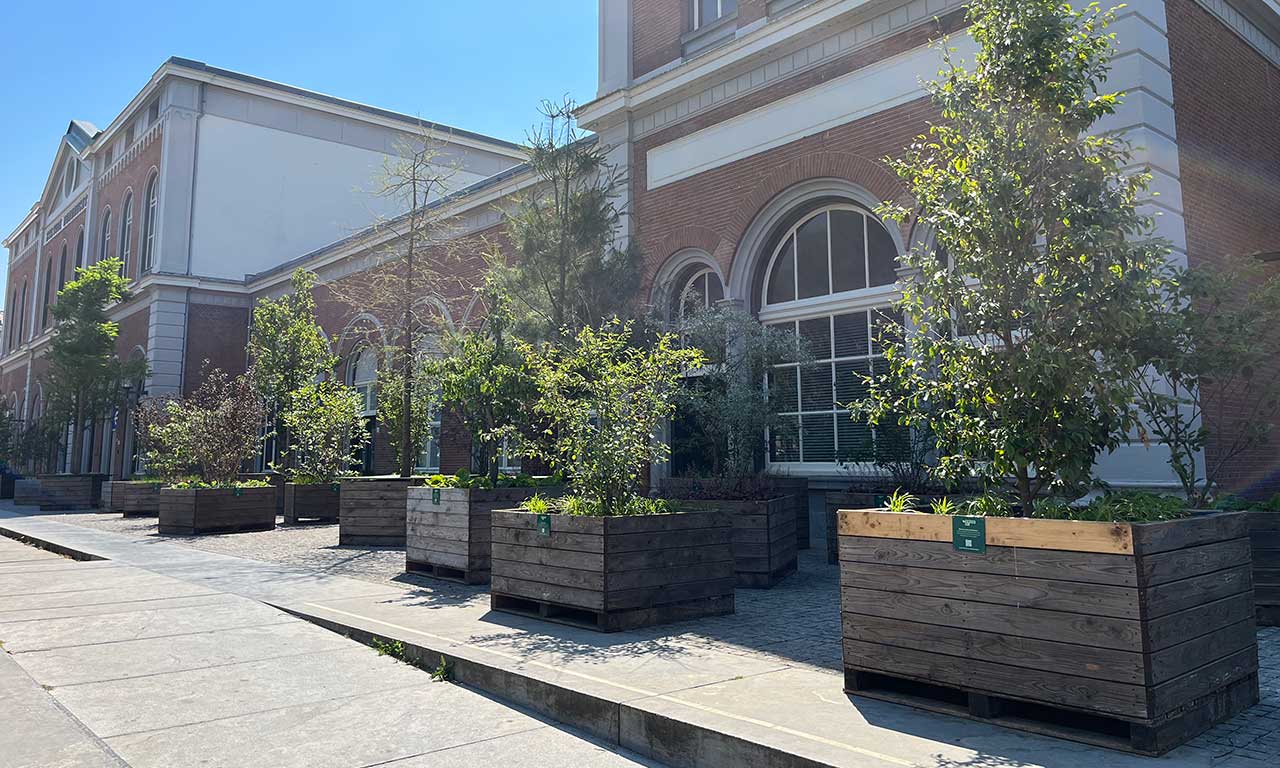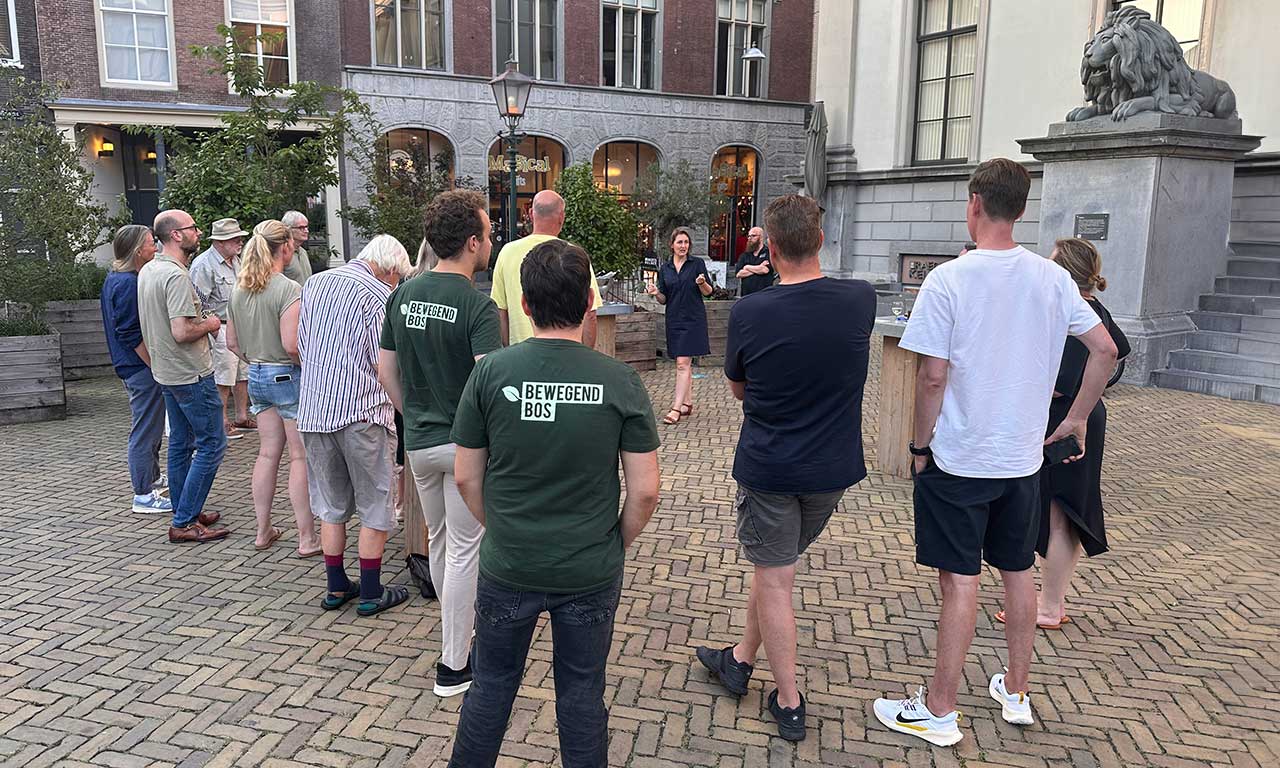Imagine 150 trees “walking” through the city - moving from square to square, through neighbourhoods and busy streets, spending a month in each place while looking for a permanent home. This has been happening in Dordrecht since 2023 with Moving Forest. As the GreenDense lead partner city, Dordrecht is encapsulating the GreenDense spirit through initiatives like these: testing creative, people-centred ways to make even the most dense urban spaces greener, healthier, and more liveable.
Moving Forest kicked off at a special climate-neutral FC Dordrecht football match in December 2023. From there, Moving Forest began its journey, travelling to 15 locations across the city. In some parts of Dordrecht, concrete squares were transformed into forests, while in others streets were temporarily closed to traffic and parking spaces turned into pockets of greenery.
Throughout the initiative’s lifecycle, Dordrecht Municipality engaged directly with over 1,200 residents about making their streets greener, and reached more than 10,000 people through letters, social media and community conversations. The initiative also helped spotlight related projects that are making the city both greener and less car-dependent, such as bike and car sharing schemes.
By bringing temporary forests into public spaces, Moving Forest set out to make Dordrecht’s city centre more vibrant and attractive, introducing more green life into previously grey spaces while contributing to several key urban goals:
- Enhancing social (and green!) connection: The sight of a “forest on the move” sparked conversations among residents and between citizens and the municipality. It also highlighted the benefits of increased greenery and demonstrated how even dense urban areas can make space for trees and other plant life in simple, creative ways.
- Encouraging civic participation: Rather than installing fixed green spaces, the project was focused on testing potential urban greening locations together with residents and local businesses. Streets were only closed in agreement with the community, ensuring greening felt collaborative.
- Boosting the mental and physical health and wellbeing of citizens: City trees have been shown to boost the health and happiness of urban populations by filtering harmful pollutants from the air and creating greener, more attractive streets for residents to enjoy. By introducing more tree coverage into Dordrecht’s city centre through initiatives like Moving Forest, Dordrecht is helping to contribute to these longer term goals.
- Improving the city’s climate resilience: The initiative helped highlight how trees strengthen cities’ resilience to the growing pressures of climate change by providing shade on hot days, absorbing CO₂ through photosynthesis, and helping to prevent flooding by soaking up rainfall.
While the Moving Forest initiative has officially concluded, its roots continue to deepen. Over 2,100 m² of new green space have been permanently added to Dordrecht’s residential streets, thirty planters have been gifted to residents in the Vogelplein district, and the remaining trees and plants are being rehomed across the city.
Perhaps the most important outcome, though, is less tangible: the conversations it inspired. The project demonstrated that greening a city doesn’t always require grand infrastructure - sometimes it starts with moving a few trees and inviting people to imagine new possibilities.
This final benefit speaks to the heart of GreenDense: bringing small-scale green infrastructure back into densely populated urban environments across North West Europe while engaging local citizens to take ownership of these new green spaces, and the wider cities that they form an integral part of. Moving Forest represents a firm example of the GreenDense mission in action and provides a brilliant blueprint for other GreenDense partner cities to draw from and potentially replicate. We look forward to seeing what innovative urban greening methods GreenDense partners will trial next.

